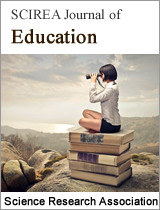THE INFLUENCE OF LEADERSHIP STYLE ON TEACHERS' JOB SATISFACTION IN PUBLIC UNIVERSITIES IN KAZAKHSTAN
DOI: 10.54647/education88205 166 Downloads 15565 Views
Author(s)
Abstract
This study was examined the relationship between faculty leaders’ leadership style and faculty teachers’ job satisfaction at two public universities in Kazakhstan (L.N.Gomylov Eurasian National University, Kazakh Women Teacher Training University). One hundred twenty-four academic staff participated the research (117 teachers, 6 faculty leaders), completed the Multifactor leadership Questionnaire (MLQ) and Mohrman-Cook-Mohrman Job satisfaction Scale (MCMJSS). The collection of data is supporting the idea of there is a strong correlation between leaders’ leadership style and teachers job satisfaction. Transactional leadership style is the most used by faculty leaders (Dean, HOD) in these two universities. Transformational, Transactional leadership style have positive impact on teachers’ job satisfaction level, while the Laisses-faire leadership style has negative influence. Another finding is showed that female teachers tend to be more satisfied than male teachers, the teachers with lower qualification are more satisfied than the PhD holders and professors. same result can be seen in other scholars’ findings (Sharma & Jyoyi, 2009; Wagner & French, 2010).
Keywords
leadership style, teachers, job satisfaction, transformational, transactional, laisses-faire leadership style
Cite this paper
Gulnar Orynbek, Xu Hui, Kalibekuly Tolkyn, Endale Fantahun Tadesee, Sabika Khalid,
THE INFLUENCE OF LEADERSHIP STYLE ON TEACHERS' JOB SATISFACTION IN PUBLIC UNIVERSITIES IN KAZAKHSTAN
, SCIREA Journal of Education.
Volume 6, Issue 2, April 2021 | PP. 33-51.
10.54647/education88205
References
| [ 1 ] | Abdullah, M., Uli, J., & Parasuraman, B. (2009). Job satisfaction among secondary school teachers. Journal Kemanusiaan, 13,11-18. |
| [ 2 ] | Al-Omari, A. (2007),. Leadership Style of Department Chairs at the Hashemite University. Journal Of Education and Psychology Sciences, 8(3), 7-24. |
| [ 3 ] | Al-Omari, A. (2008). The Relationship between Leadership styles of Hashemite University Department Chairs and job Satisfaction as Reported by Department Faculty Members. University of Sharjah Journal for Humanities & Social Sciences, 5(2), 101-124. |
| [ 4 ] | Armstrong, M. (2006). A Handbook of Human Resource Management Practice. (10th ed.) London: Kogan Page. |
| [ 5 ] | Bass B.M. and Riggio, R.E. (2006). Transformational Leadership. (2nd ed.) Mahwah: Lawrence Erlbaum Associates. |
| [ 6 ] | Bohen, S.j. and Stiles, J. (1998). Experimenting with Models of Faculty Collaboration: Factors That Promote their Success. New Directions for Institutional Research, 98(100), 39-55. |
| [ 7 ] | Bogler, R. (2001). The influence of Leadership Style on Teacher Job Satisfaction. Educational Administration Quarterly, 37(5),662-683. |
| [ 8 ] | Blankenship, S. L. (2010). The consequences of transformational leadership and/ot transactional leadership in relationship to job satisfaction and organizational commitment for active duty women serving in the air force medical service (Order No. 3398823). Available from ProQuest Dissertation & Theses Full Text: The Humanities and Social Sciences Collection. (276227724). Retrieved from http://search.proquest.com/docview/276227724?accountid=7374 |
| [ 9 ] | House, R.J. (1976). A 1976 Theory of Charismatic Leadership in Hunt, J.G and Larson L.L. (eds) Leadership: The Cutting Edge. A Symposium Held at Southern Illinois University, Carbondale. 189-207. Carbondale: Southern Illinois University press. |
| [ 10 ] | Shah, S. (2006a). Leading Multiethnic School: a new understanding of Muslim Youth Identity. Educational Management, Administration and Leadership, 34(2), 215-237. |
| [ 11 ] | Bass, B.M., Avolio, B. J., Jung, D. I., & Berson, Y. (2012). Predicting unit performance by Assessing transformational and transactional leadership. Journal Applied Psychology, 88(2), 207-218.doi:10.1037/0021-9010.88.2.207. |
| [ 12 ] | Burns, J.M. (1978). Leadership. New York: Harper & Row. |
| [ 13 ] | Dale, J. C., Jr. (2012). The correlation of the perceived leadership style of middle school principals, To teacher job satisfaction and efficacy. (Order No.3546181, Liberty University). ProQuest Dissertation and Thesis, 197. Retrieved from http://search.proquest.com/docview/1238003178?accountid=7374. |
| [ 14 ] | Duyar, I., Gumus, S., & Mehmet, S.B. (2012). Multilevel analysis of teacher work attitudes. The International Journal of Education Management, 27(7), 700-719. Doi:10.1108/IJEM-092012-0107. |
| [ 15 ] | Eyal, O., & Roth, G., (2011). Principals’ leadership and teachers’ motivation. Journal of Educational Administration 49(3), 256-275. Doi:10.1108/09578231111129055 |
| [ 16 ] | Ingersoll,R. M. (2003). The teacher shortage: Myth or reality. Education Horizons, 81(3), 146-152. Retrieved from eric.ed.gov/?id=EJ665621. |
| [ 17 ] | Klassen, R., & Chiu, M. (2010). Effects on teachers’ self-efficacy and job satisfaction: Teacher gender, Year of experience, and job stress. Journal of Educational Psychology, 102, 741-756. doi: 10.1037/a0019237 |
| [ 18 ] | Nadim, M., Muhammad, S.C., Massod, N.K., & Riaz, T. (2012). Effects of motivational factors On teachers’ job satisfaction: A study on public sector degree colleges of Punjab, Pakistan. The journal of Commerce, 4(4), 25. Retrieved from http://search.proquest.com/docview/1221264426? Accounted=7374 |
| [ 19 ] | Peacock, J. S. (2014). Science instructional leadership: The role of the department chair. Science Educator, 23(1), 36-48. Retrieved from http://lopes.idm.oclc.org/login?url=http://search.proquest.com.lopes.idm.oclc.org/docview/1552464392? Accounted=7374 |
| [ 20 ] | Sawchuk, S. (2012). Principals criticized on teacher-retention decisions. Education Week, 31(37), 17. Retrieved from www.edweek.org. |

